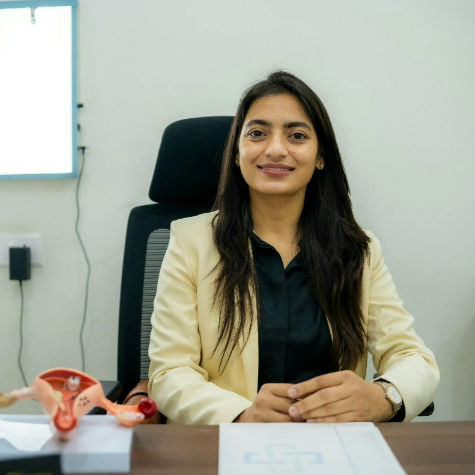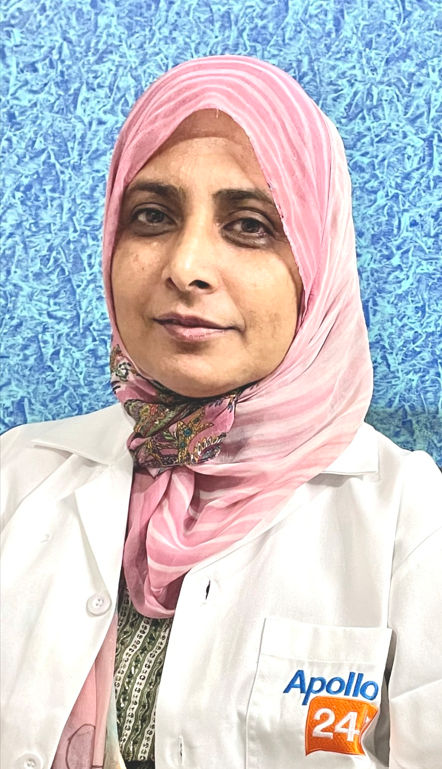PID and Pelvic Pain
Pelvic Inflammatory Disease (PID) leads to pelvic pain that can disrupt the lives of women. Learn about it and its prevention and treatment options for a healthy life.

Written by Dr Sonia Bhatt
Last updated on 3rd Jul, 2025
Some sexually transmitted infections (STIs), like gonorrhoea and chlamydia, can cause pelvic inflammatory disease (PID), a dangerous infection of the female reproductive system. If not intervened and treated early, this infection can get worse and cause problems like infertility and constant pelvic pain. This pain can affect both the reproductive and non-reproductive organs in women, and when paired with PID, it requires immediate treatment to avoid further and more complicated health issues. Therefore, early pelvic pain diagnosis and treatment are crucial to better manage PID and minimise its long-term consequences.
Causes of Pelvic Inflammatory Disease
Primarily, bacterial illnesses are the main reason for PID more often than anything else. Most of the time, gonorrhoea and chlamydia are to blame for this condition, but germs from urinary tract diseases or bacterial vaginosis can also be the reason for PID. This disease spreads from the cervix to the organs in the pelvis, causing swelling and illness. Bacterial diseases usually occur due to poor hygiene levels, having multiple sexual partners, or having unprotected sex.
Factors Increasing the Risk of Developing PID
Some health and living choices can make one more likely to get PID. Some of these are:
Being Sexually Active At A Younger Age: Younger women are more likely to get an infection because their cervix is less protected.
Multiple Sex Partners: Having more than one sexual partner raises the risk of getting an STI.
Sexual Activity without Protection: Not using a condom during sexual activity raises the risk of getting an STI.
Recent IUD Insertion: Intrauterine devices (IUDs) can make it easy for bacteria to get into the uterus.
Douching: Douching, which is the process of cleaning the vagina with a liquid solution, can throw off the natural balance of vaginal flora, which makes it easier for bad bacteria to grow.
Symptoms of PID and Pelvic Pain
Some of the typical signs of PID are:
Lower Stomach Pain: This is often the most obvious sign of PID. The pain can be dull or sharp, depending on the severity of the condition.
High Temperature: As the body tries to fight off the illness, PID often comes with a mild to high fever.
Pain during intercourse: Women suffering from PID experience pain during intercourse.
Painful Urination: This is a common sign of this illness and can make going to the toilet a painful and uncomfortable experience.
Unusual Bleeding: Spotting abnormal vaginal bleeding between periods is a common sign.
More Vaginal Discharge: The vaginal discharge may start to smell bad when individuals suffer from PID.
Fatigue: Many people suffering from PID feel tired and sick, especially when the infection grows.
At the same time, people need to learn about the different types of pelvic pain to better comprehend their situation. Here is what they need to look out for:
Sharp, Cramp-Like Pain: This can be in the lower belly or around the hips, and it can get worse during periods or during intercourse.
Dull, Aching Pain: Lasting pain in the pelvic area, usually connected to ongoing fertility problems or damage from PID.
Pain in The Back or Thighs: In serious cases, PID pain in the pelvis can move to the back, hips, or legs, which is an alarming sign.
Consult Top Obstetrics and gynaecologist
Diagnosis of PID
A full physical check and assessment of medical history are the first steps in diagnosing PID. The doctor will ask patients about their symptoms and any other problems they have had with their reproductive health in the past. During the check-up, the doctors may look for soreness in the pelvic area and unusual vaginal discharge, as both of these could be signs of an illness.
Diagnostic and Imaging Procedures
Several tests may be done to prove the diagnosis and find out how bad the infection is:
Pelvic Ultrasound: This imaging test helps find signs of infection or damage in the pelvic organs.
Cervical Culture: This is a test that takes a sample from the cervix to look for STIs like gonorrhoea or chlamydia.
Urine Test: Look for signs of an illness or other health problems.
Laparoscopy: This is a more serious procedure that lets doctors see the pelvic organs directly and take biopsies if needed.
Endometrial Biopsy: An endometrial biopsy looks for infections or other problems in the lining of the uterus by taking a sample of it.
Complications Arising from Untreated PID
If affected women don't treat PID in time, it can cause serious problems. Here is what they will face:
Infertility: Scarring on the fallopian tubes from PID can make it impossible for eggs to pass through, which can make a woman unable to bear a child.
Ectopic pregnancy: PID raises the chance of an ectopic pregnancy, which happens when a fertilised egg implants outside the uterus, most often in the fallopian tube.
Another major issue with this condition, when left untreated, is persistent pelvic discomfort, including chronic pain. Attachments (scar tissue) that hold organs together in the pelvic region are affected by this condition. Hence, the patients feel pain all the time. In the worst-case scenarios, this pain is so excruciating that individuals often struggle to move.
Treatment Options for PID and Pelvic Pain
Antibiotics, frequently administered jointly to eliminate all the bacteria causing PID, are the primary treatment method for this condition. Antibiotics prevent scarring by killing the germs. However, if the infection is severe or there are sores, individuals may need IV antibiotics and hospitalisation.
PID pelvic pain sufferers can also find comfort by regulating their pain. Over-the-counter painkillers like ibuprofen and paracetamol can provide relief for mild to severe pain. Physical therapy, pelvic floor exercises, and acupuncture may help alleviate the pain and discomfort.
Prevention and Risk Reduction
To prevent PID and reduce its risk, women need to take care of the following –
Protective Sexual Habits
Practising safe sex is the best way to avoid getting PID. When women use a condom during every sexual interaction, it greatly lowers the chance of getting STIs that could cause PID. Regular STI testing is also very important, especially for sexually active people who have more than one partner.
Routine Health Examinations and Testing
Regular gynaecological checks, such as pelvic exams and STI screens, can help find infections early before they lead to PID. Early identification is important to avoid long-term problems like infertility and pain that won't go away.
Living with Chronic Pelvic Pain
Living with PID is not easy, but certain lifestyle modifications can offer relief and cure. Maintaining a healthy weight, exercising, and managing stress help reduce discomfort. Additionally, changing diet, like cutting back on foods that worsen inflammation, may also help.
Along with this, support and alternative treatment options further the recovery. Getting help from family and friends is essential for dealing with the physical and mental effects of severe pelvic pain. Psychological help like counselling, support groups, and cognitive behavioural therapy (CBT) can help people deal with the problems that come with having chronic pain.
Advancements in Research and Treatment
PID Emerging Therapies
There have been considerable advancements in the treatment of PID. The major focus is now on finding broad-spectrum antibiotics and targeted medicines to destroy germs. Scientists are also looking into immunotherapies and vaccinations to prevent PID. Additionally, new blood tests, imaging modalities, and laparoscopic procedures are helping doctors diagnose PID sooner and more accurately.
Conclusion
Pelvic inflammatory disease (PID) is a serious condition that greatly affects women's reproductive and overall health. Thus, recognising the symptoms early and seeking timely medical intervention can significantly reduce the risks of infertility, chronic pelvic pain, and other complications. Also, following the right preventive measures can help women deal with this condition in the early stages and lead a healthy life.
Consult Top Obstetrics and gynaecologist
Consult Top Obstetrics and gynaecologist

Dr. Priyanka Surisetty
Obstetrician and Gynaecologist
8 Years • MBBS, DGO
Visakhapatnam
Apollo 24|7 Clinic - Andhra Pradesh, Visakhapatnam
(150+ Patients)

Dr Swatika Kumari
Obstetrician and Gynaecologist
19 Years • MBBS, DGO, DNB Obstetrics & Gynaecology
Nashik
Apollo 24|7 Clinic - Maharashtra, Nashik

Dr. Shailaja L
Obstetrician and Gynaecologist
16 Years • MBBS, MS
Bangalore
Apollo 24|7 Clinic - Karnataka, Bangalore

Dr. Ajita Mishra
Obstetrician and Gynaecologist
7 Years • MBBS, MS (Obstetrics & Gynaecology), FMAS, AMASI
Kolkata
DIGGA HEALTHCARE, Kolkata
(100+ Patients)

Dr Homeira Nishat
Obstetrician and Gynaecologist
34 Years • MBBS, Diploma in Obstetrics & Gynaecology
Bengaluru
Cure Hospital and Clinic, Bengaluru
Consult Top Obstetrics and gynaecologist

Dr. Priyanka Surisetty
Obstetrician and Gynaecologist
8 Years • MBBS, DGO
Visakhapatnam
Apollo 24|7 Clinic - Andhra Pradesh, Visakhapatnam
(150+ Patients)

Dr Swatika Kumari
Obstetrician and Gynaecologist
19 Years • MBBS, DGO, DNB Obstetrics & Gynaecology
Nashik
Apollo 24|7 Clinic - Maharashtra, Nashik

Dr. Shailaja L
Obstetrician and Gynaecologist
16 Years • MBBS, MS
Bangalore
Apollo 24|7 Clinic - Karnataka, Bangalore

Dr. Ajita Mishra
Obstetrician and Gynaecologist
7 Years • MBBS, MS (Obstetrics & Gynaecology), FMAS, AMASI
Kolkata
DIGGA HEALTHCARE, Kolkata
(100+ Patients)

Dr Homeira Nishat
Obstetrician and Gynaecologist
34 Years • MBBS, Diploma in Obstetrics & Gynaecology
Bengaluru
Cure Hospital and Clinic, Bengaluru